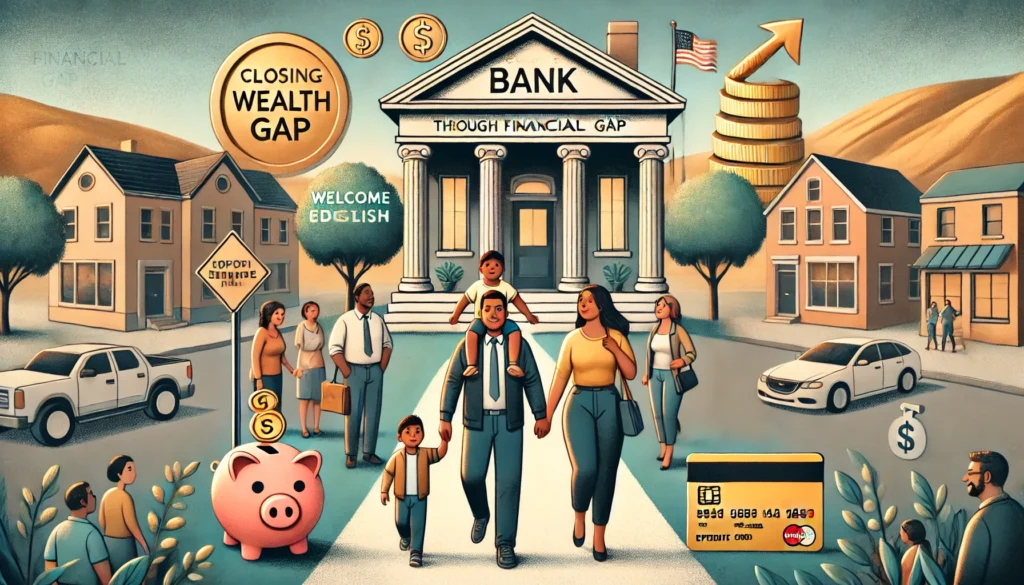Growing up, I remember hearing about families who didn’t trust banks or have access to them. It wasn’t until I started learning more about personal finance that I realized how common this experience is, especially for many in the Hispanic community. In fact, 12% of Hispanic households are unbanked, compared to only 3% of white households [1]. Understanding why this happens—and what we can do to change it—can help us close the wealth gap and improve financial security for future generations.

Why Does This Happen?
- Trust in Banks. Many Hispanic individuals, especially immigrants, often have less trust in traditional financial institutions. This can stem from past experiences in their home countries, where banks may not have been reliable or safe. Additionally, concerns about how U.S. banks handle personal information contribute to this distrust.
- Language Barriers. For many in the Hispanic community, English may not be their first language. Unfortunately, banks frequently lack bilingual staff or resources, making it difficult to navigate financial systems. As a result, some individuals may feel confused or intimidated and avoid banks altogether.
- Immigration Status. Immigration status can also be a source of worry. Some people are concerned it might affect their ability to open an account. However, many are unaware that a Social Security number isn’t always required. In most cases, an Individual Taxpayer Identification Number (ITIN) is enough enough to open a bank account in the U.S.
- Income Instability. Financial instability can also be a barrier. Lower income levels and job instability can make meeting minimum balance requirements or avoiding account fees difficult. Also, banks often charge monthly fees or require a certain balance to waive them, which can make banking seem out of reach.
- Lack of Financial Education. Finally, financial literacy is a major challenge. Many in the Hispanic community lack access to education on how banks, savings accounts, and credit work. Without this knowledge, the benefits of banking may not be clear, causing people to remain unbanked.
The Importance of Closing the Wealth Gap
Being unbanked has significant consequences for financial growth. Without a bank account, it’s harder to build credit, save for the future, or access loans for essential purchases like a home. This lack of access can hold many Hispanic families back from accumulating wealth and limits upward mobility. As a result, the wealth gap between Hispanic and white households remains wide and, without change, it could persist.
The first step to closing this gap is access. Offering more inclusive banking options—like bilingual services, lower fees, and financial education—can bridge this divide. Opening a bank account helps build credit, save for emergencies, and ultimately create generational wealth.
Final Thoughts: Taking Steps Toward Financial Inclusion
Addressing the reasons why so many Hispanics are unbanked is crucial to closing the wealth gap. From building trust in financial institutions to increasing access to bilingual services, there are many steps that can help the Hispanic community gain access to the financial tools needed to build wealth. With education, access, and resources, we can empower more families to achieve financial security.
In the end, banking is about more than just keeping money in an account—it’s a pathway to financial independence and success. The more accessible these services become, the better equipped we will be to close the wealth gap and create lasting financial stability.

Leave a Reply